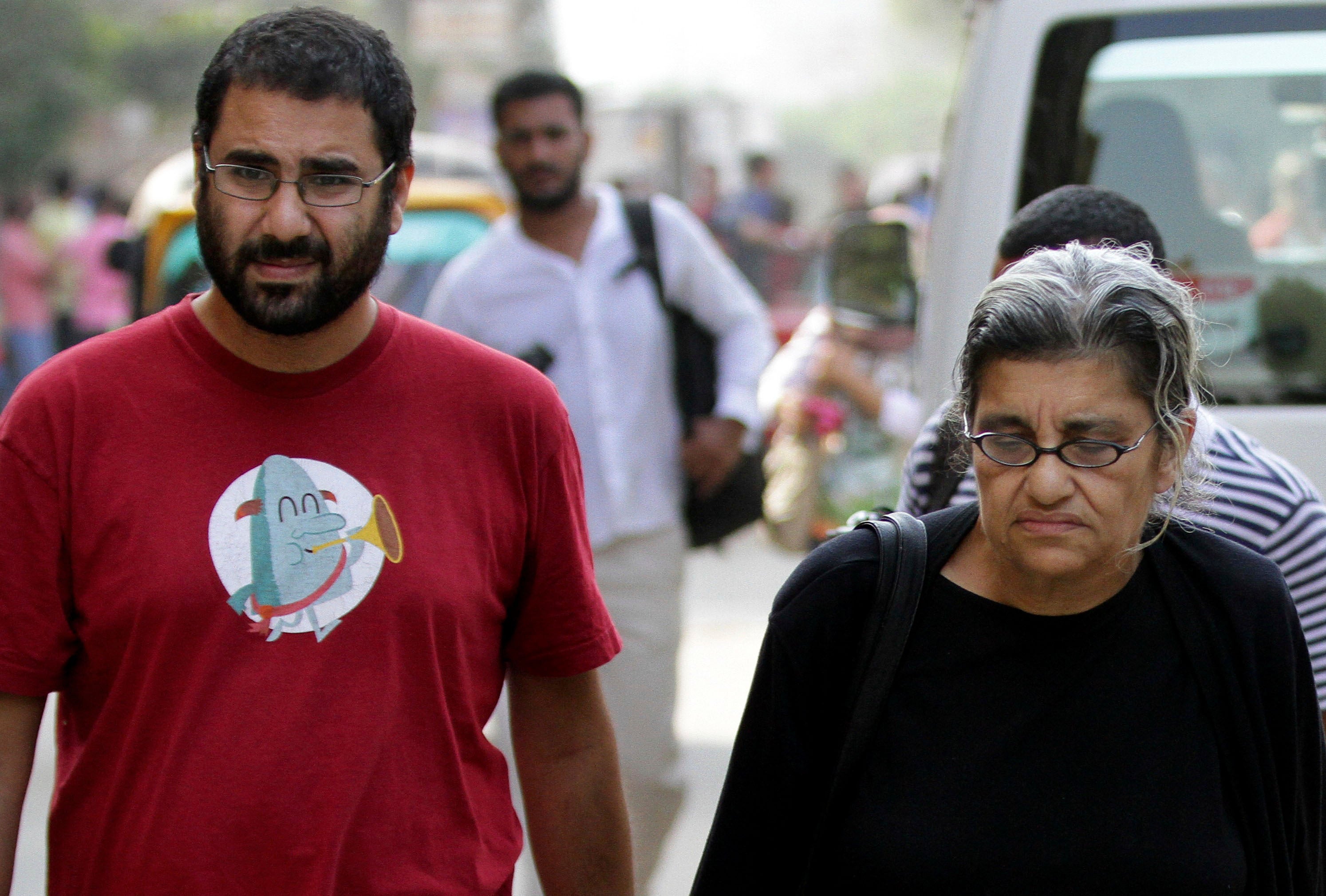Amnesty urges Egypt to free prominent activist, allow access
A leading human rights watchdog is urging Egyptian authorities to allow the family of a prominent activist serving a five-year sentence access to him

Your support helps us to tell the story
From reproductive rights to climate change to Big Tech, The Independent is on the ground when the story is developing. Whether it's investigating the financials of Elon Musk's pro-Trump PAC or producing our latest documentary, 'The A Word', which shines a light on the American women fighting for reproductive rights, we know how important it is to parse out the facts from the messaging.
At such a critical moment in US history, we need reporters on the ground. Your donation allows us to keep sending journalists to speak to both sides of the story.
The Independent is trusted by Americans across the entire political spectrum. And unlike many other quality news outlets, we choose not to lock Americans out of our reporting and analysis with paywalls. We believe quality journalism should be available to everyone, paid for by those who can afford it.
Your support makes all the difference.A leading human rights watchdog on Thursday urged Egyptian authorities to allow the family of a prominent activist serving a five-year sentence access to him, and reiterated calls for his immediate release.
For nearly 10 days, Alaa Abdel-Fattah's family members had not received any word from him and were told by prison officials that he is refusing to meet with them, Amnesty International reported.
The London-based group also urged authorities to urgently grant the United Kingdom consular access to the 40-year-old computer programmer. Abdel-Fattah has been on a hunger strike for nearly 110 days to protest the conditions of his imprisonment, his family had said earlier.
The hunger strike is still going on and there has been no word of Abdel-Fattah's medical condition. He was sentenced last December to five years on charges of spreading false news, a charge often used to sentence opposition and pro-democracy activists in Egypt.
Earlier this year, Abdel-Fattah gained British citizenship through his mother, Laila Soueif, a math professor at Cairo University who was born in London, his family announced in April.
“He must be granted immediate access to his family and a consular visit and to ensure his protection from renewed torture and other ill-treatment,” Amnesty said in a statement.
Abdel-Fattah, an outspoken dissident, rose to prominence with the 2011 pro-democracy uprisings that swept the Middle East and in Egypt toppled long-time autocrat Hosni Mubarak. Abdel-Fattah spent most of the past decade behind bars and his detention has become a symbol of Egypt’s return to autocratic rule.
On Thursday, Abdel-Fattah's mother filed a petition with Wadi El-Natrum Prison authorities, asking for an explanation as to why her son is allegedly refusing to receive any visitors, his sister Mona Seif wrote on Twitter.
“How is Alaa? Why aren’t we visiting him? What’s happening inside? and what are we waiting for to resolve all of this and get to see him and see for our selves he is well?” his sister said.
She also said their mother had been making a trip every day for five days to the prison, located about 100 kilometers (62 miles) north of Cairo, where the family lives, hoping for any word of him.
Abdel-Fattah was first sentenced in 2014 after being convicted of taking part in an unauthorized protest and allegedly assaulting a police officer. He was released in 2019 after serving a five-year term but was rearrested later that year in a crackdown that followed rare anti-government protests.
The family said at the time that they sought a British passport for Abdel-Fattah as a way out of his “impossible ordeal.” Since then, the family has been asking authorities to grant him access to a consular visit.
Last year, Abdel-Fattah’s family and his Egyptian lawyers accused prison authorities in Cairo’s Tora Prison of torturing him and denying him basic legal rights. They also called for prosecutors to investigate the claims. In April, authorities transferred him from the notorious facility to the newly-inaugurated Wadi El-Natrun Prison.
Since April, Egypt has been releasing political detainees as part of President Abdel Fattah el-Sissi's efforts to reach out to the political opposition amid grinding economic crisis, spawned by Russia's invasion of Ukraine.